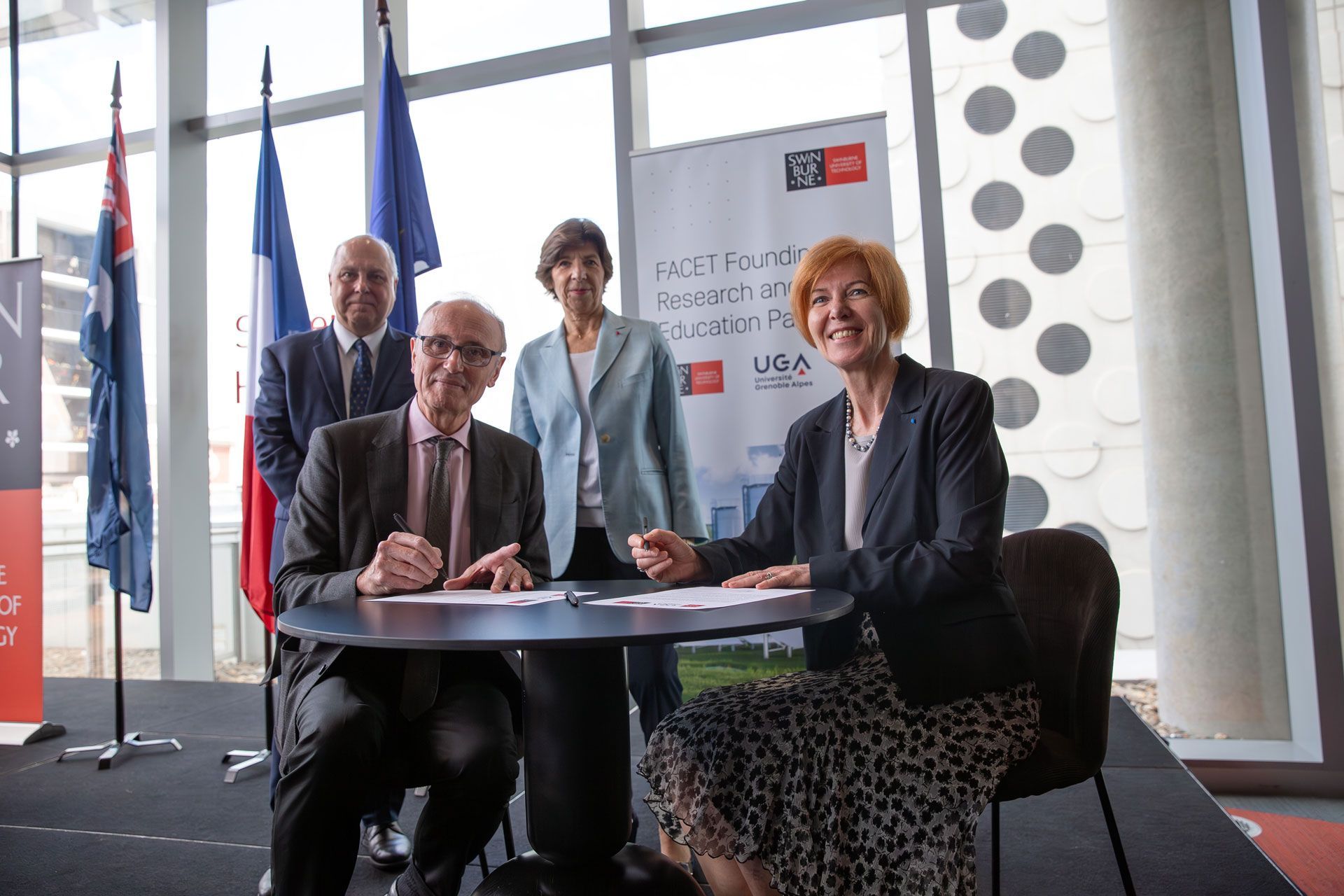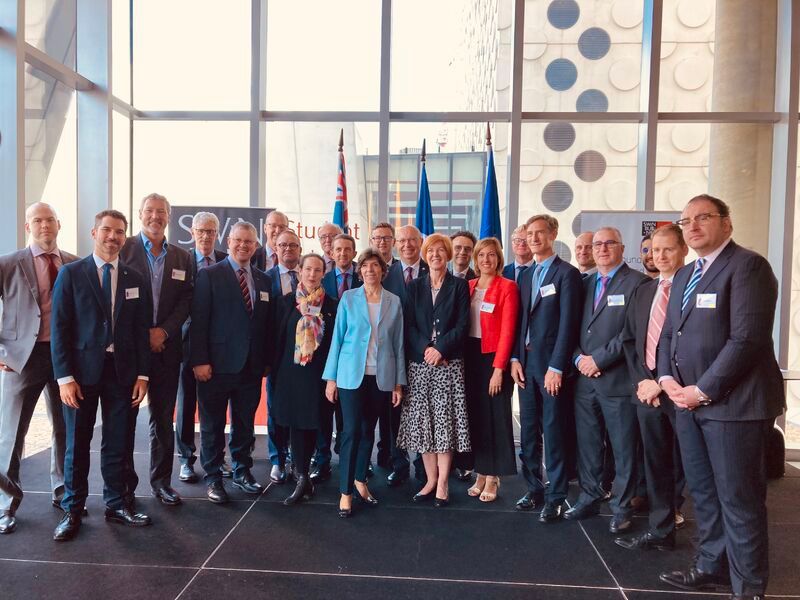Creating sustainable energy solutions

FACET launch event December 2023 with 16 First Movers and signature of the letter of intention between the three founding partners.
Who we are
Franco-Australian Indo-Pacific Centre for Energy Transition
Combining partners from universities, research institutions and industry, FACET undertakes joint activities in innovation, research, education and training, with a strong focus on energy transition, thought leadership, low-carbon energy production, and supply chain decarbonisation.
FACET engages in partnerships with territories and countries of the Indo-Pacific region to co-create and implement an ambitious climate change response agenda.
Our four pillars
FACET Grants 2026:
Expressions of Interest open!
Energy transition impact
Our areas of strategic focus
Complex energy systems / smart grids
The transition to renewable energy can be seamlessly enabled through the deployment of smart grids and smart energy management systems, improving the process of data gathering, analysis, and control of energy consumption.
Energy storage and hydrogen
Hydrogen, a critical renewable energy, is being looked at as a vital player in our efforts to reduce carbon emissions and work towards a decarbonised economy.
We are directing our attention towards how we can most effectively and safely store this low-carbon fuel.
Future fuels
Enabling a decarbonised economy will require alternative net zero fuels.
The implementation of new fuels can present various obstacles, including concerns regarding cost-effectiveness, storage capacity, distribution logistics, and safety measures.
PV / solar / wind
Solar photovoltaic (PV) panels are a fantastic way to reduce energy costs for commercial and residential properties, however they play an even bigger part in our transition to net zero.
Industry decarbonisation
A sustainable future for all requires advancing industry decarbonisation.
The effective adoption of renewable and clean energy, smart energy management, energy transition metals and energy education and policy will help to enable sustainable industries.
Critical minerals
Critical minerals play a pivotal role in facilitating the shift towards more sustainable energy sources and innovative technologies.
These minerals can be found in electric vehicles, battery storage systems, wind turbines, solar panels, and various electronic and electrical devices.
Batteries of the future
Describe the item or answer the question so that site visitors who are interested get more information. You can emphasize this text with bullets, italics or bold, and add links.Innovation and startups
Education and skills
Our Founding Partners

CEA research and innovation centre
The CEA is a key player in research, development and innovation in four main areas: defence and security, low carbon energies (nuclear and renewable energies), technological research for industry, fundamental research in the physical sciences and life sciences.

Swinburne University of Technology
With outstanding researchers and facilities, specialist institutes and centres, strategic platforms and initiatives, and a focus on high-quality and ethically sound research, Swinburne is ranked among the top 300 research-intensive universities in the world.

Grenoble Alps University
In association with the national research organisations and the international research facilities present on its territory, UGA builds its innovation policy on a global scale. As a driving force for progress and a laboratory for initiatives, it collaborates with its many partners to accompany the evolution of society.
Acknowledgement of Country
FACET acknowledges the Traditional Owners of Country throughout Australia and their continuing connection to land, waters and community.
We pay our respects to the people, the cultures and the Elders past, present and emerging.






